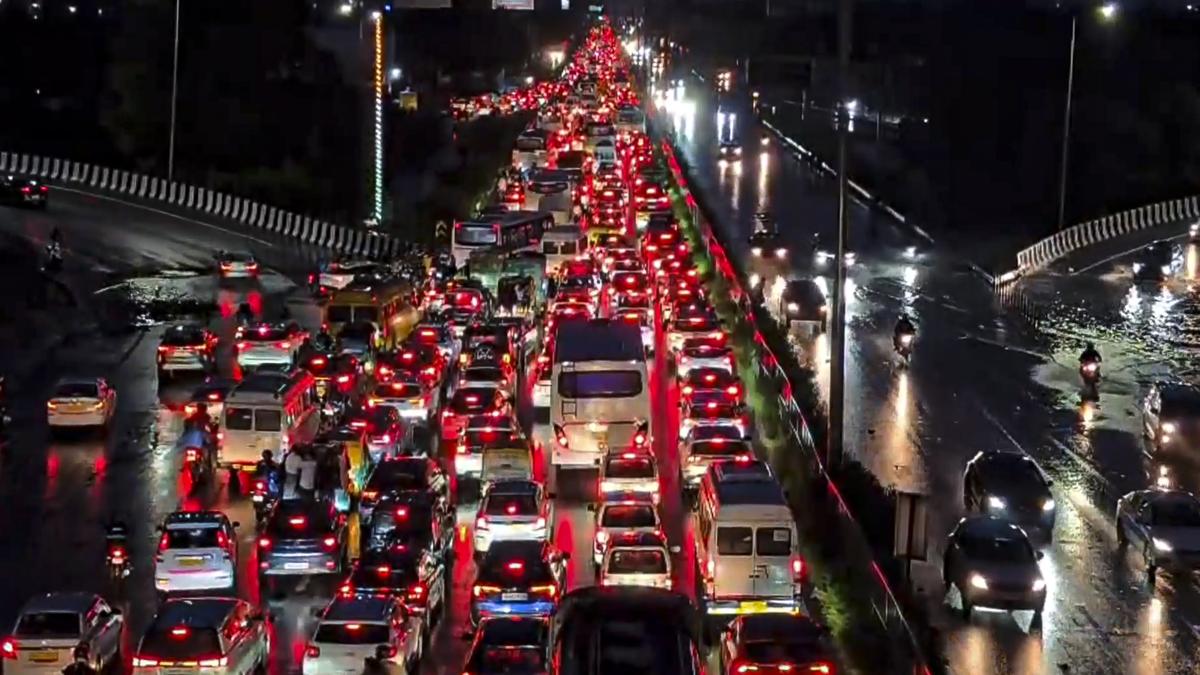ARTICLE AD BOX
Providing clarity on the Registration of Foreigners (Exemption) Order for neighbouring countries, the Ministry of Home Affairs (MHA) on Tuesday issued a gazette notification stating that the requirements for a valid passport, travel document and visa will not apply to citizens of Nepal or Bhutan entering India by land or air across the Nepal and Bhutan border. The exemption also applies if they possess a valid passport while entering or exiting India from or to a place other than Nepal or Bhutan, but not from China, Macau, Hong Kong or Pakistan.
Under the Immigration and Foreigners Act, 2025, introduced recently, every state government and Union Territory administration will set up dedicated holding centres or detention camps to restrict the movement of illegal foreigners till they are deported, the order issued by the MHA said.
In a notification titled ‘Immigration and Foreigners (Exemption) Order, 2025’, issued on Tuesday, Nitesh Kumar Vyas, Additional Secretary, said that this order replaces the Registration of Foreigners (Exemption) Order, 1957, and Immigration (Carriers’ Liability) Order, 2007, consolidating exemptions that were spread across earlier fragmented laws.
“Several Sections of the Act and rules with regard to requirement of valid passport or other valid travel document and valid visa for entry into, stay in and exit from India, will not apply in several cases. They will be exempt when a member of Naval, Military or Air Forces of India, entering or exiting India on duty and members of the family of any such person when accompanying such person on a government transport,” it said.
The exemptions will also apply to “a Tibetan who has already entered into India and staying in India or entering into India if he has registered with the Registration Officer concerned and obtained a certificate of registration in accordance with rule 13 of the rules”, it states, listing the norms:
- if he has entered into India after 1959 but before the May 30, 2003 on the Special Entry Permit issued by the Embassy of India in Kathmandu;
- if he has entered into India after the May 30, 2003 till the date of commencement of the Act on the new Special Entry Permit issued by the Indian Embassy in Kathmandu through the immigration post on the Indo-Nepal border as designated by the Central government; or
- if he enters into India on or after the commencement of the Act on the new Special Entry Permit issued by the Embassy of India in Kathmandu through the immigration post on the Indo-Nepal border as designated by the Central Government.
According to the notification, the exemptions will also apply to a person belonging to a minority community in Afghanistan, Bangladesh and Pakistan, namely Hindus, Sikhs, Buddhists, Jains, Parsis and Christians, who were compelled to seek shelter in India due to religious persecution or fear of religious persecution and entered into India on or before December 31, 2024—without valid documents including passport or other travel documents; or with valid documents including passport or other travel documents and the validity of such documents have expired.
“The provisions of sub-sections (1), (2) and (3) of section 3 of the Act to the extent of their stay in India and for the purposes of exiting India shall not apply to registered Sri Lankan Tamil nationals who have taken shelter in India upto January 9, 2015,” the notification adds. Registered here means registered with an officer designated for this purpose by the central or state government, the notification states.
Story continues below this ad
In another notification, the MHA said every foreigner applying for any category of visa, including registration as an Overseas Citizen of India (OCI) cardholder, shall allow his or her biometric information to be taken by the authority issuing the visa or the authority granting the registration as OCI cardholder before the grant of such visa or registration as OCI cardholder. “In case of illegal immigrants apprehended within India, they shall be imposed with restrictions on movement in a holding centre or camp pending deportation,” it said.
Putting restrictions on mountaineering expeditions, the MHA said no foreigner or group of foreigners shall climb or attempt to climb any mountain peak in India without obtaining prior permission in writing from the central government and without specifying of route to be followed, the attachment of a liaison officer and the use of photographic and wireless communication equipment. “Besides, every foreigner shall be required to obtain a permit to enter into or stay in any protected or restricted area. However, anyone having their origin in Afghanistan, China, or Pakistan will not be allowed to visit such restricted areas,” it said.
India’s restricted areas include the entire states of Arunachal Pradesh, Manipur, Mizoram, Nagaland and Sikkim, parts of Jammu and Kashmir, Uttarakhand, Ladakh, Himachal Pradesh, and Rajasthan, among others.



.png)
.png)
.png)























 English (US) ·
English (US) ·